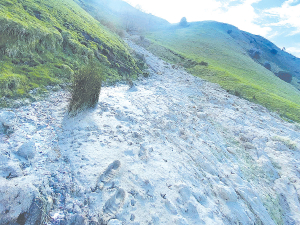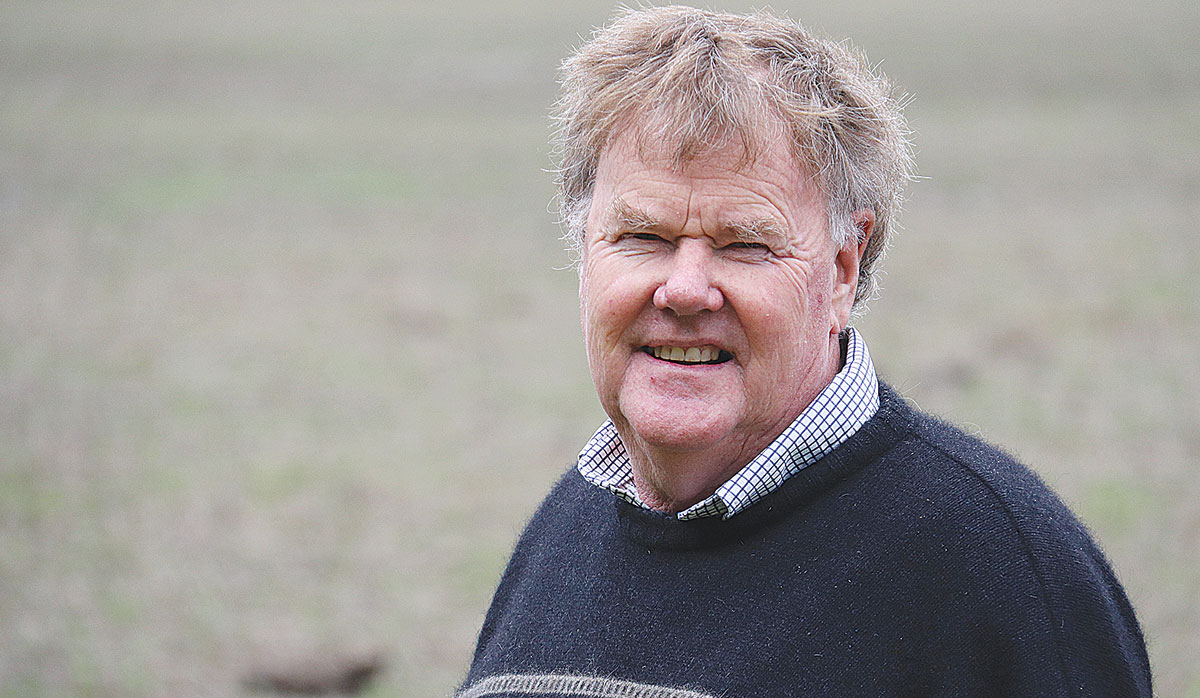Hawke’s Bay sheep and beef farmers warned to monitor stock water wells
Sheep and beef farmers in Hawke's Bay are being urged to keep a close eye on the wells that supply water to their stock.
 Land that turned to mud during Cyclone Gabrielle will be in danger of turning into concrete if the forecast drought comes.
Land that turned to mud during Cyclone Gabrielle will be in danger of turning into concrete if the forecast drought comes.
Major players in the primary sector are mobilising ahead of predictions that the country is about to be hit by potentially one of the country's worst droughts. Peter Burke reports...
AgFirst consultant Lochie MacGillivray, based in Hawke's Bay, is spending a lot of his time looking at mechanisms farmers along the East Coast can use to manage a drought.
MacGillivray says some of the budgets he's seen have a 'lot of red ink'.
"This is because of lower commodity prices, on top of the cost of repairing damage on their farms caused by Cyclone Gabrielle and subsequent rain events."
He adds that there are massive problems in northern Hawke's Bay with infrastructure damage, some of which has been repaired, but in other cases not. MacGillivray says the temporary repairs will need to be fixed permanently at some stage.
"The hills are still moving, making it impossible to repair fences, which is leading to large mobs of sheep instead of the normal smaller ones," he told Rural News. "The other problem, which would normally be good news, is that the lambing percentage on many farms is very good with lots of triplets and survivability is high."
MacGillivray says at the moment, stock are probably not worth as much as they normally would be.
"With low returns and walkin into a windy, dry period it's going to get tough," he warns.
 |
|---|
|
Lochie MacGillivray and the team at AgFirst are looking at getting plans in place early to deal with the drought when it arrives. |
"The biggest issue is the added stress that this will put on farmers. They have come out of a horrible wet winter and are having a bit of reprieve, but it's drier under now and changing very quickly - so no wonder the financials are poor."
MacGillivray and the team at AgFirst are looking at getting plans in place early to deal with the drought when it arrives.
He's experienced these in the past and says farmers who plan well in advance and effectively micro-manage the plan cope well with the drought.
He adds that one farming couple set up a whiteboard and put all the decisions they had to make on this and set trigger points when these needed to be made.
"They had gazillions of decisions and in the end, it wasn't so much the big ones that mattered, but the smaller ones which added up to the big ones," MacGillivray told Rural News.
"Another farmer I know also had a whiteboard up and every day at lunchtime he updated it, and he came through the drought better than most."
MacGillivray says farmers should look for support and get outsiders in to help review their plans.
The 5+ A Day Charitable Trust has launched a collection of affordable recipes designed to turn everyday vegetables into seasonal stars.
Jane Mellsopp has been confirmed as the new Government Appointee to the New Zealand Meat Board (NZMB).
To celebrate the tenth anniversary of its annual Good Deeds competition, Rabobank will give away $100,000 to improve rural community hubs, schools, clubrooms, and marae across New Zealand.
Agricultural and veterinary product supplier Shoof International has appointed Michaela Dumper as its new chief executive.
Federated Farmers is celebrating following the Government's announcement that young farmers will be able to use their KiwiSaver funds to buy their first home or farm.
The Meat Industry Association of New Zealand (MIA) today announced that Chief Executive Officer Sirma Karapeeva has resigned from the role.

OPINION: A mate of yours truly reckons rural Manawatu families are the latest to suffer under what he calls the…
OPINION: If old Winston Peters thinks building trade relations with new nations, such as India, isn't a necessary investment in…